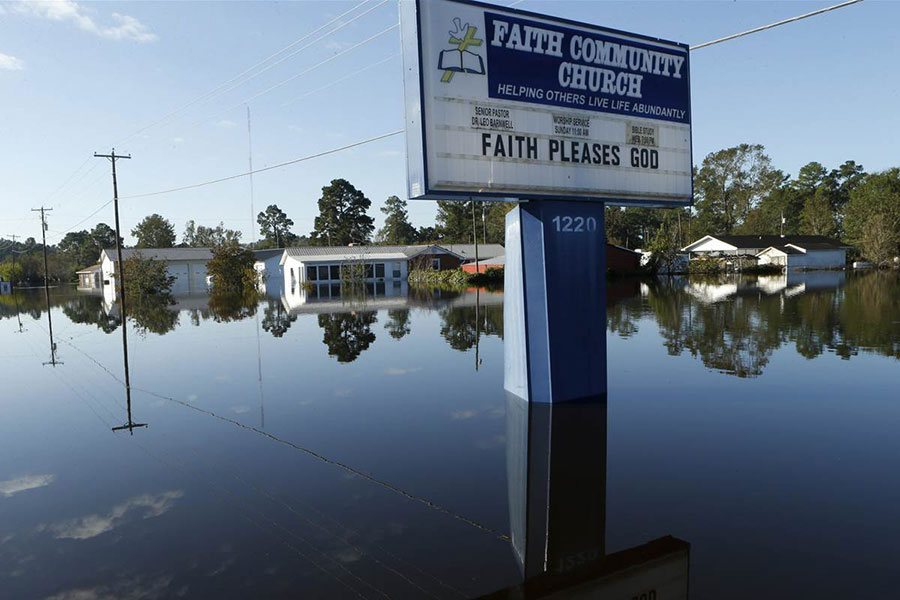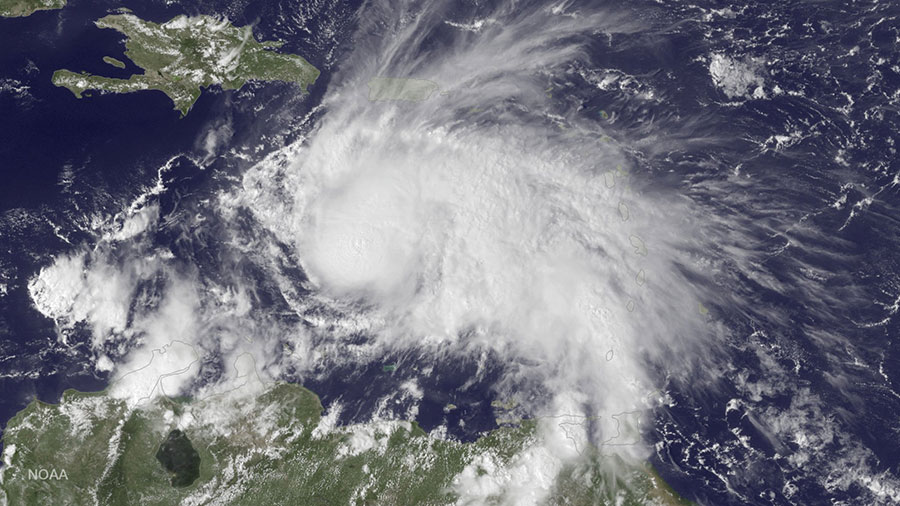As Hurricane Matthew passed over North Carolina, it increased its death toll to 43 people, but it also claimed the lives of at least 1.8 million chickens and almost 5,000 pigs due to flooding.
The aftermath of Hurricane Matthew will affect producers and consumers alike seeing that North Carolina is one of the U.S.’s primary producers of pork and poultry. Governor Pat McCrory stated that they still need to bury the remnants of the livestock to prevent any potential health hazards.


The largest tropical storm to date hit hard on North Carolina
Hurricane Matthew has claimed 43 lives so far, where 26 of them occurred in North Carolina. The hurricane caused floods throughout the whole state, preventing the use of most of its major roads and riversides. Hurricane Matthew took the lives of at least 500 people in Haiti.
The latest confirmed deaths in North Carolina attributed to Hurricane Matthew where from a 53-year-old man and a 47-year-old woman that were pulled out from their submerged vehicles. There was also a 40-year-old man found drowned in his flooded home, who reportedly refused to leave after rescuers warned him that both of the rivers near his house were dangerously overflowing.
Even after the storm, flooded grounds were amass throughout the whole state which almost led to a transit collapse where the I-95 was closed near Lumberton. Princeville, Fair Bluff, Lumberton, and other towns of North Carolina are almost completely underwater. Gov. McCrory reminded residents of Hurricane Floyd in 1999, which caused similar damages.
Thousands of homes lie without electric power and those who do have electricity have to deal with constant power outages. Some parts of North Carolina are experiencing a severe drought, where cities west of Charlotte saw little rain from Hurricane Matthew. Residents were suggested to boil water from flooded wells if they ran short of drinking water, which it seems to be lacking in the western portions of North Carolina.
But the advice to drink boiled flood water appears unsafe to the whole state, seeing that North Carolina officials surveyed the state using airplanes to seek out environmental hazards, particularly in the form of manure pits that could contaminate the surroundings.
Donald van der Vaart, North Carolina’s head of Environmental Quality, commented that optimistically, the state’s lagoons remain free of contaminants, but that there cannot be full certainty until flood water dissipates. Regarding contamination, a coal ash release was reported at a plant in Goldsboro, Wayne County. The plant is located near the Neuse River, one of the rivers that overflowed due to the waters stirred by Hurricane Matthew.
Back in 1999, North Carolina saw similar eventualities due to Hurricane Floyd, where livestock carcasses and manure flew all over the state and contaminated wells and lagoons. The dead animals were incinerated or buried, but the state’s administration was criticized for not disposing correctly of the carcasses, as there were cases of contamination in wells of drinking water. In the case of Hurricane Matthew, the animal remains will be organically disposed of, being turned into compost and subsequently into fertilizer.
Source: Reuters

